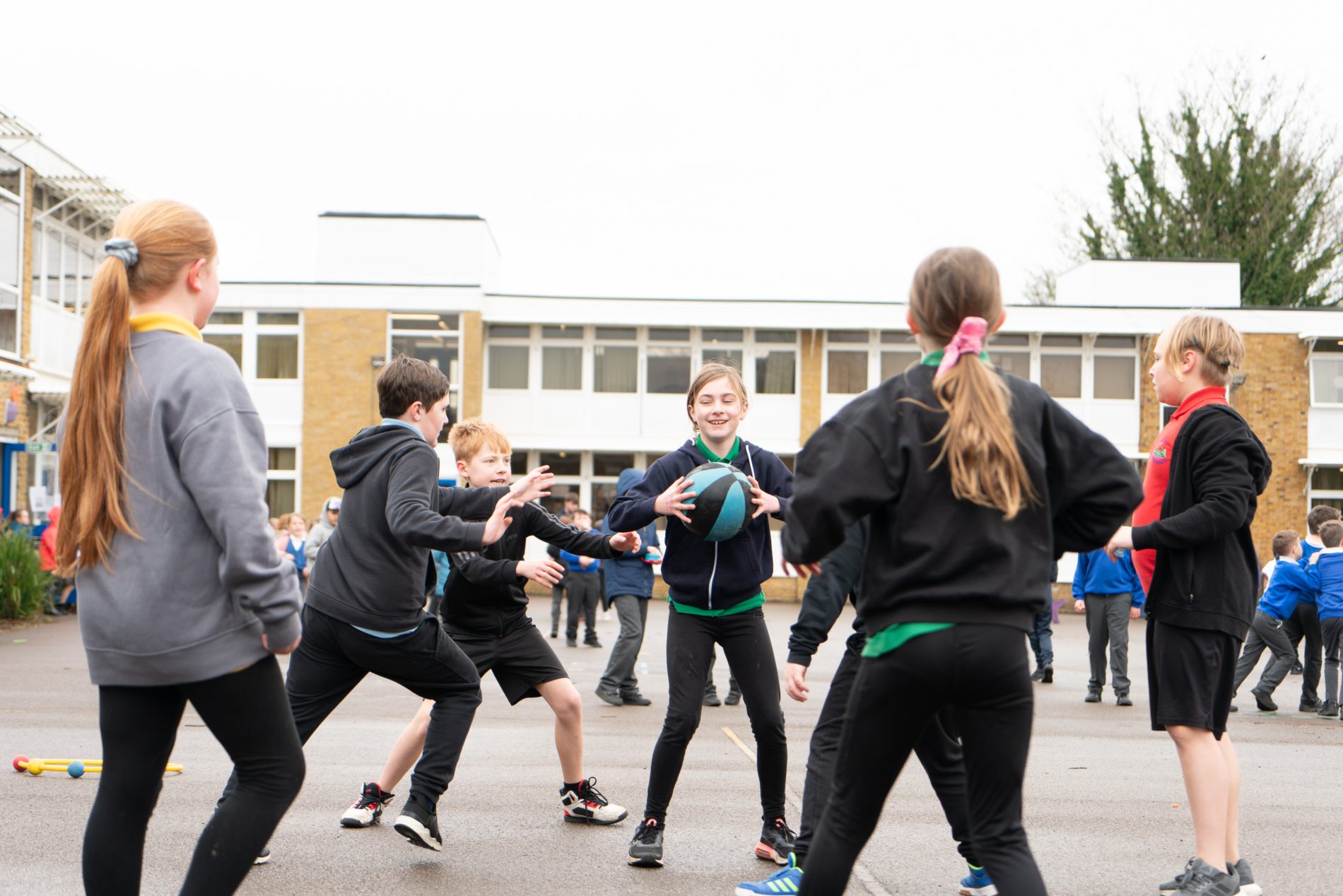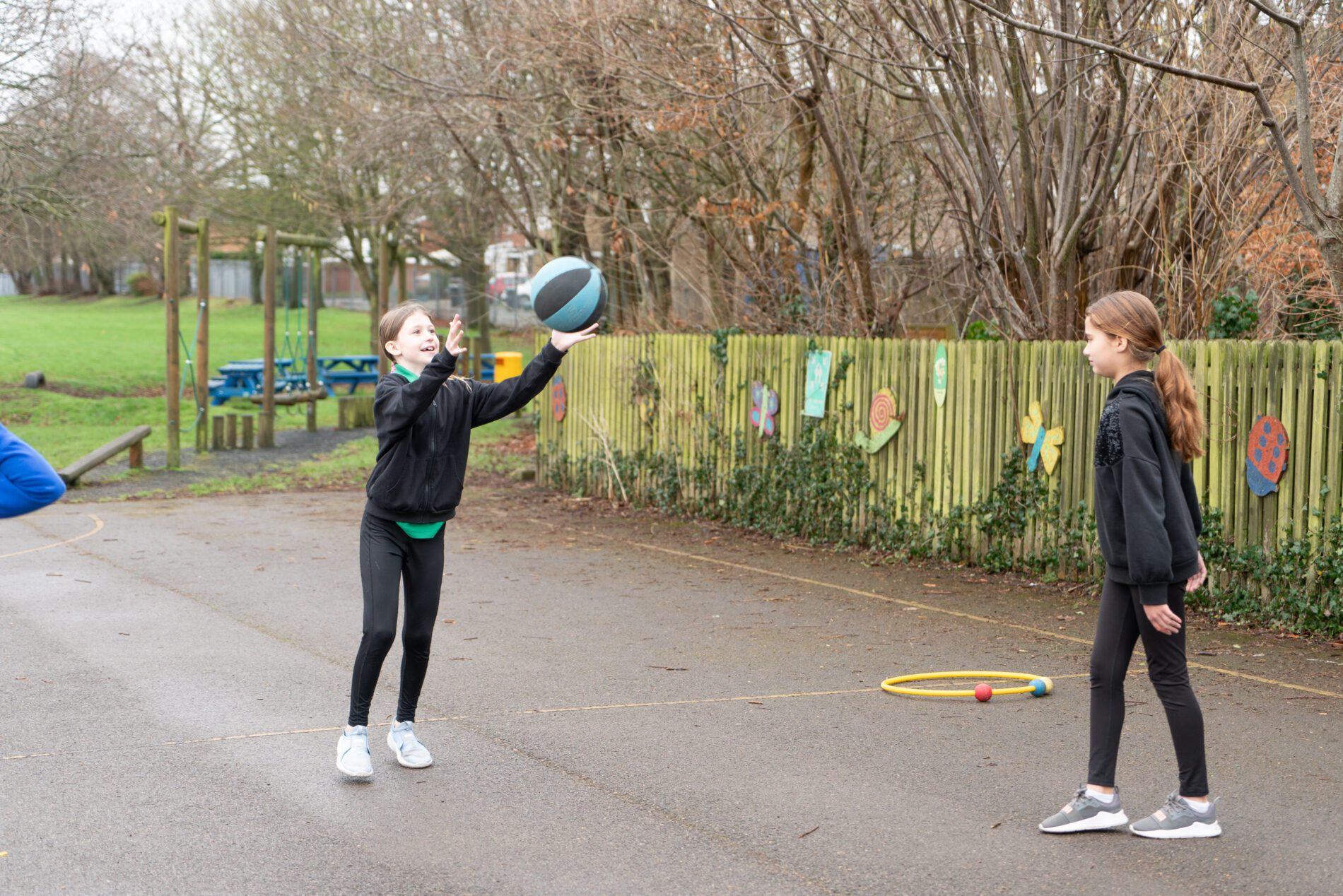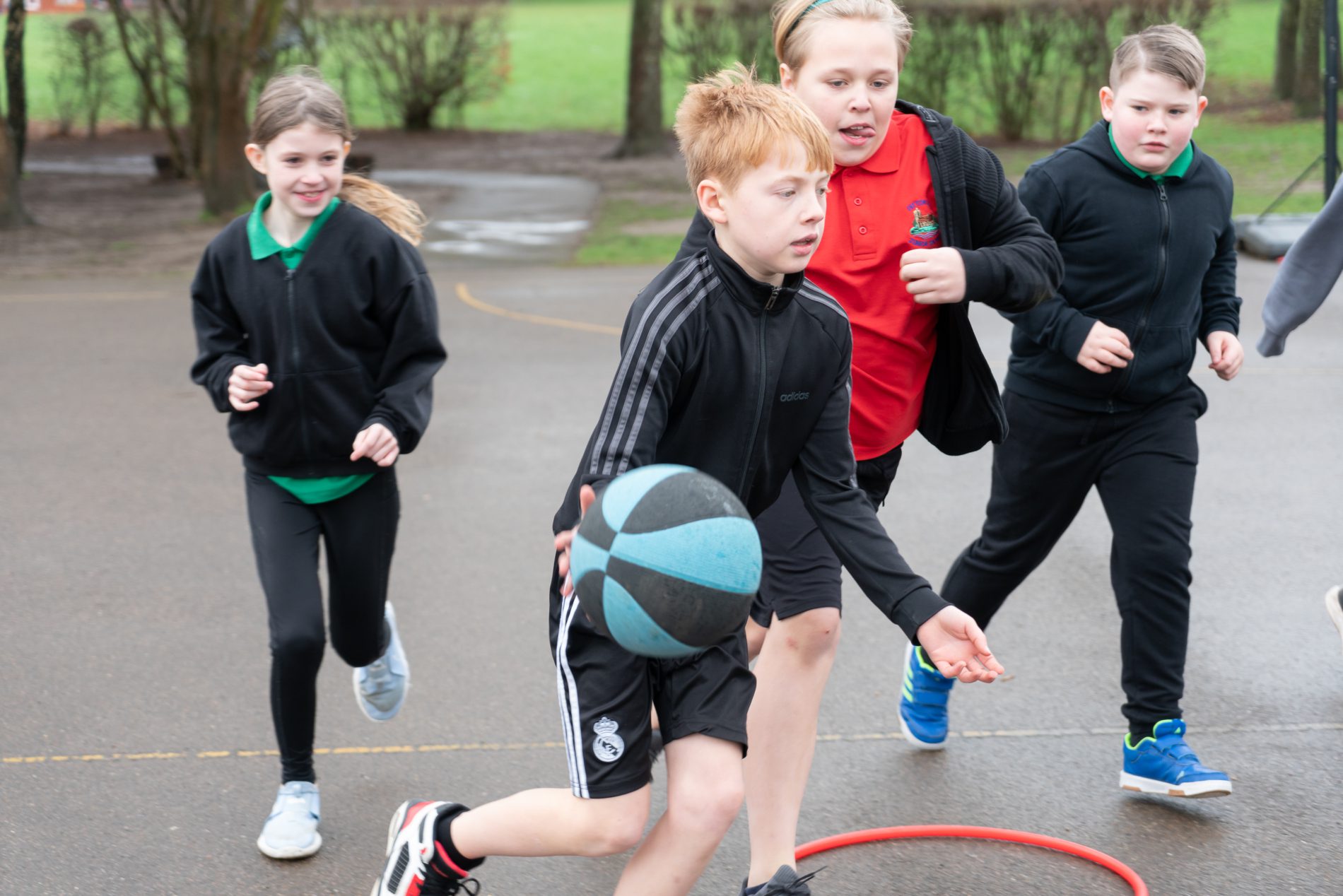Physical Education Subject Leader: Miss A Baker
Intent
Ditton Junior School recognises the importance of Physical Education (P.E) and we follow the aims of the national curriculum as a minimum to ensure that all children can:
- develop skill and understanding to achieve in a broad range of physical activities
- be physically active for sustained periods of time in some vigorous exercise
- engage in competitive sports and activities
- understand how to lead healthy, active lives
Children will have the opportunity to reflect upon their performances and give feedback to others. PE and school sport will also be used to further embed the schools core values.


Implementation
P.E. is taught as a stand‐alone lesson for two lessons per week to each class. Cross‐curricular links have been established to also encourage further active lessons. The use of Sports Leaders are also implemented to increase opportunity to participate in competitive activities that develop skills.
We teach lessons so that children:
- Have fun and experience success in sport
- Have the opportunity to participate in P.E at their own level of development using differentiation
- Secure and build on a range of skills both across year groups and termly within year groups Develop good sporting attitudes that are also upheld in the school’s core values
- Understand basic rules
- Experience competition
- Participate in some demanding physical activity to enhance fitness levels
- Learn in a safe environment
- Have a foundation for lifelong physical activity, leaving primary school as physically active and bearing the knowledge of how to maintain an active lifestyle
Structuring our learning around the Quigley curriculum helps children to:
- The ability to acquire new knowledge and skills exceptionally well and develop an in‐depth understanding of PE.
- The willingness to practise skills in a wide range of different activities and situations, alone, in small groups and in teams and to apply these skills in chosen activities to achieve exceptionally high levels of performance.
- High levels of physical fitness.
- A healthy lifestyle, achieved by eating sensibly, avoiding smoking, drugs and alcohol and exercising regularly.
- The ability to remain physically active for sustained periods of time and an understanding of the importance of this in promoting long‐term health and well‐being.
- The ability to take the initiative and become excellent young leaders, organising and officiating, and evaluating what needs to be done to improve, and motivating and instilling excellent sporting attitudes in others.
- Exceptional levels of originality, imagination and creativity in their techniques, tactics and choreography, knowledge of how to improve their own and others’ performance and the ability to work independently for extended periods of time without the need of guidance or support.
- A keen interest in PE. A willingness to participate eagerly in every lesson, highly positive attitudes and the ability to make informed choices about engaging fully in extra‐curricular sport.
- The ability to swim at least 25 metres before the end of Year 6 and knowledge of how to remain safe in and around water.
Impact
Our pupils acquire the full range of skills and knowledge outlined in the National Curriculum and recognise the resilience needed to improve and excel in a range of physical activities. They have opportunities to experience a broad range of individual and team activities so that they can all find something within PE that they enjoy and can achieve well in. Children are supportive of each other when participating in team and competitive individual activities, and fully understand the impact that physical activity can have on their health and wellbeing.

Physical Education Progression
Assessments
Teacher assessment is ongoing and forms part of our planning process in all subjects. Pupils’ attainment in all subjects is tracked 3 times per year against teacher assessment frameworks.
SEND Information
Interventions, support, and challenges are constantly revised and adapted to ensure all children are supported in achieving learning. Learning is robustly and continuously monitored and assessed to ensure gaps in learning are addressed. Teachers and support staff offer adaptive teaching to enable access for all, and may provide scaffolds, pre-teaching, and other support and intervention, as outlined in the Kent Mainstream Core Standards. Pupils may also be supported to access learning through the use of Clicker software.

